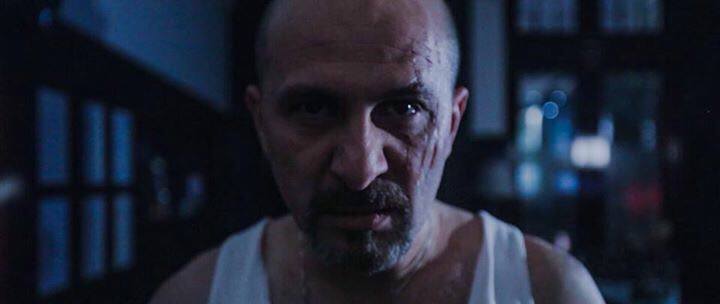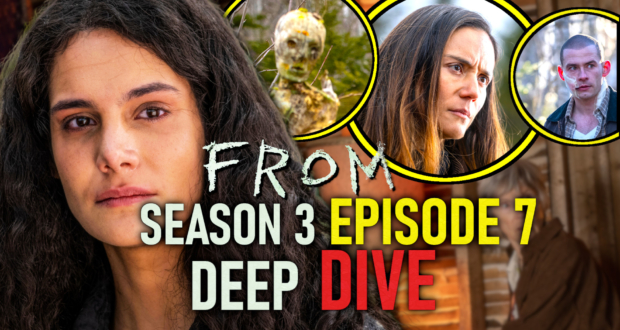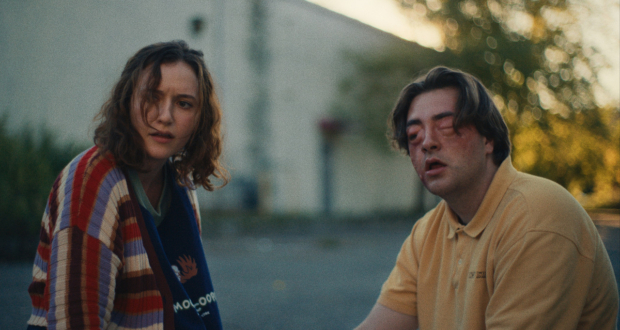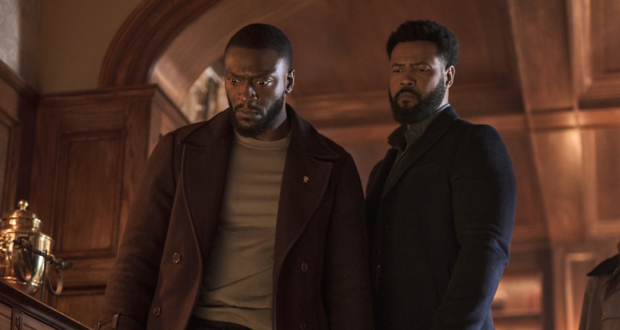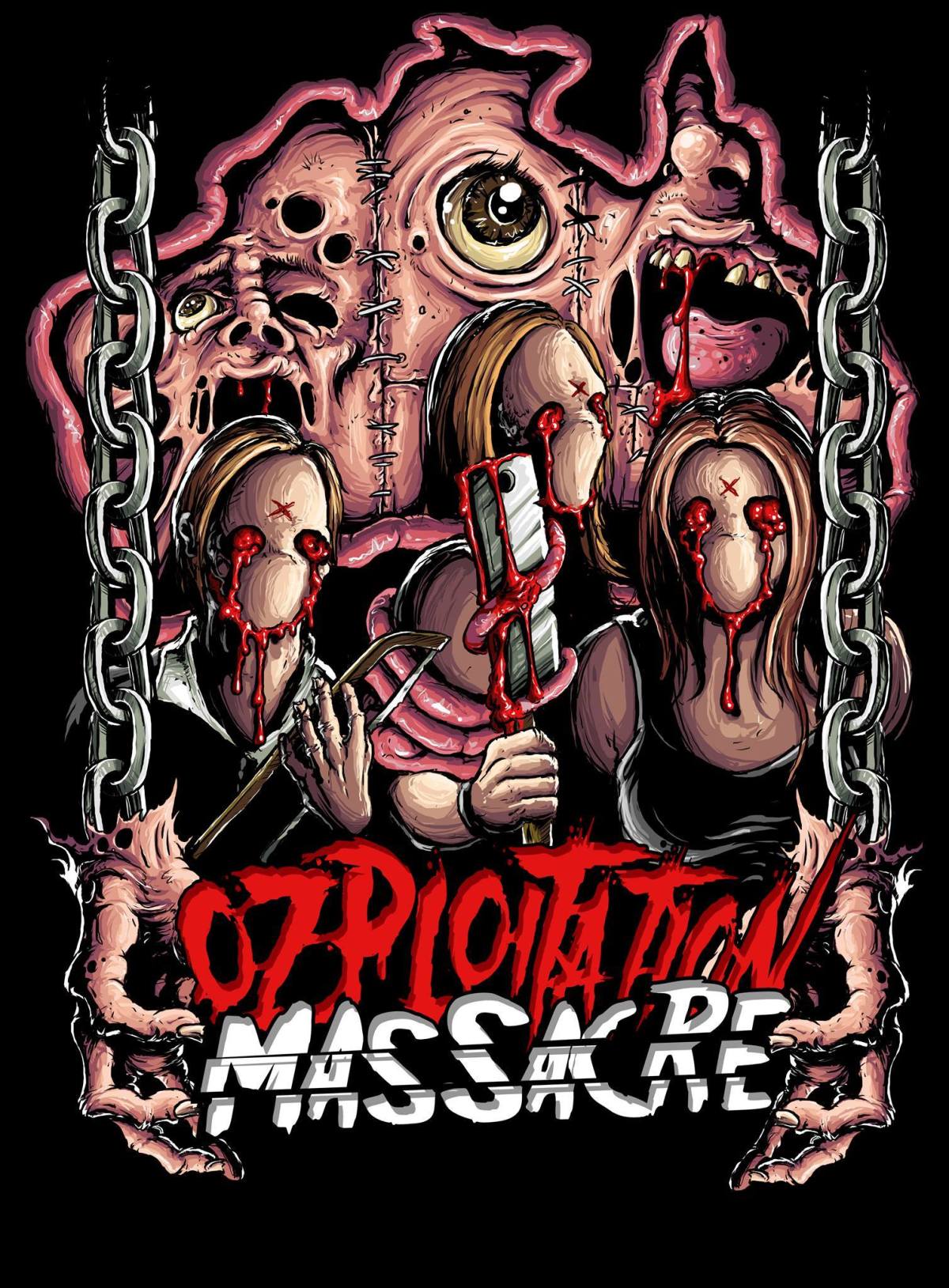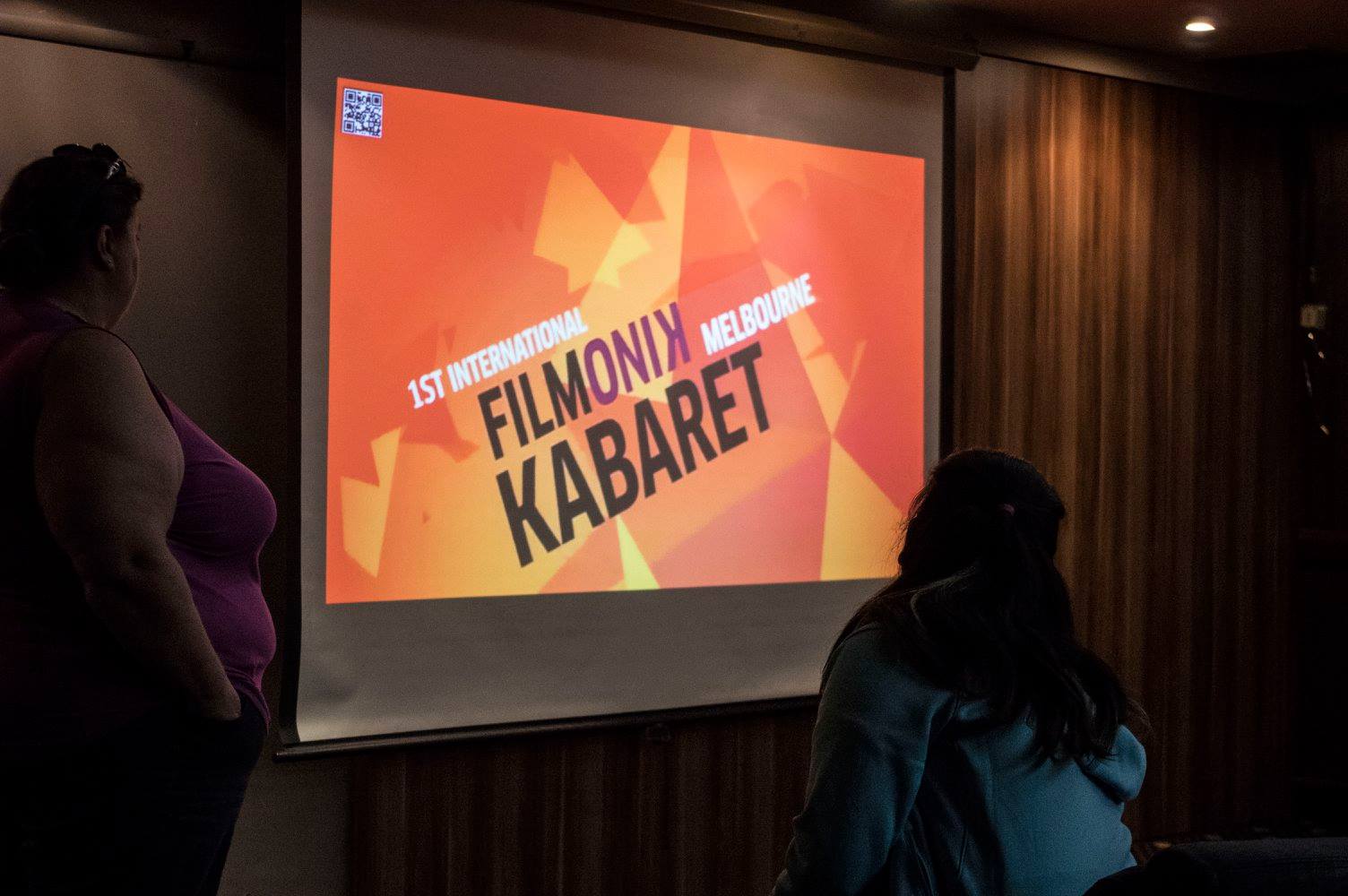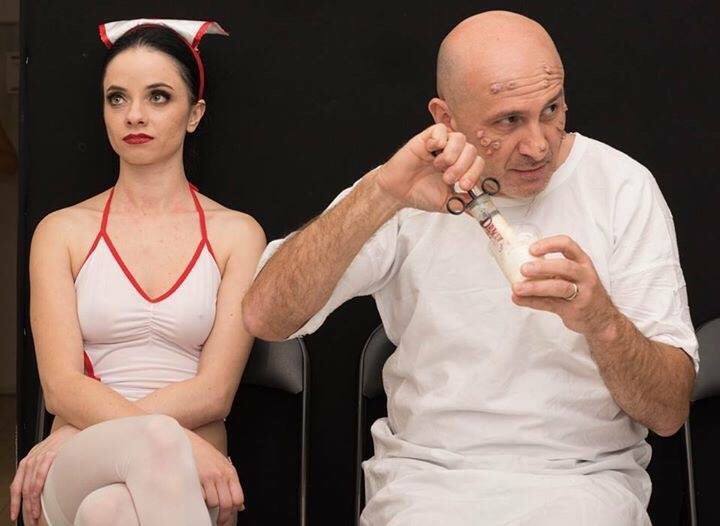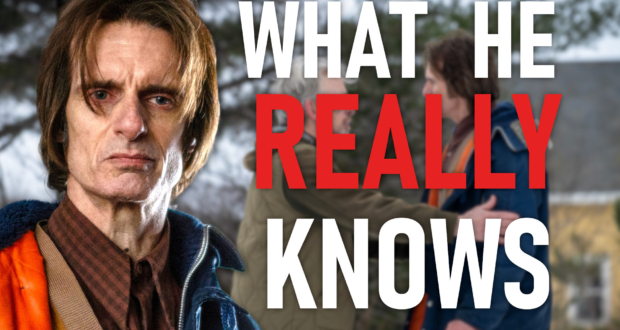David Black interviews one of the most prolific actors of the Australian indie movie industry – Albert Goikhman!
Hi everyone. Today I am going to be chatting to one of the hardest working actors in the Australian indie movie industry. I met Albert Goikhman a year ago on the set of “The Last Hope.” I was still new to the industry and feeling nervous. I’d been on the sets of “Cult Girls”, “The Perfect Nonsense” and “Universe Stellar Birth” before, but those had all happened within the previous week or two, so I hadn’t had time for much to sink in.
Albert was very welcoming and supportive to me, so I didn’t flee the shoot screaming in fear. He was the veteran actor that everyone was looking up to. I was the newbie and outsider, and really didn’t feel like I belonged on the set. I think that some newer actors and extras tend to feel that they need to set the pecking order straight and establish their dominance straight up by giving the new kid a bit of shtick.
I’m not singling out “The Last Hope” either as a movie that I felt unnerved on as an extra. One “veteran” actress gave me the worst glares I’d ever seen each time I went to enter the green room on Cult Girls. It wasn’t until a later shoot, that she wasn’t on, that I was able to enter and mingle with the others. Without Albert having been so welcoming, I might have just simply given this whole industry a miss and never discovered how much fun it can be.
Albert himself was once the newcomer too, being originally from Moscow.
DB – Hi Albert
AG – Hello David and everyone else. Thank you for giving me the opportunity to be involved and share my experience.
DB – Albert, I don’t think there are any other actors in Melbourne that are active on so many sets currently, or have completed so many shoots over the last few years. What is it that motivates you and where do you get all that energy from?
AG – I seriously don’t think I work on so many sets, but I am trying to do as much as I can to support Indie Films in Melbourne. My main motivation is to get better. I work full time as oncology nurse and don’t have time to attend any classes to improve my acting skills, so I’ve decided to do more films and learn from other actors. When I am on set, I am constantly learning by observing others or rehearsing with them, or even just watching others doing their thing. We often discuss different acting techniques while waiting on set. I also believe doing more films and being involved in more productions, is the great opportunity to network and meet new directors, DOPs or other crew members. That relationship might lead to new collaborations and projects in the future. The energy is just there for me and comes from my love and passion to acting. And I wouldn’t be able to do it without support from my family.
DB – You have an extensive history in acting and showbiz that predates you coming to Australia. Did you want to give us a bit of a run down on that?
AG – I was encouraged to read a lot from a very young age. I read a lot of books. And we went to the theatre a lot. And cinema as well, actually – Bollywood and French movies were really popular back in Russia when I was young. I come from the country where every child was acting and performing since young age. It is part of the Russian culture. We start preforming in child care in front of our families, then in primary school in front of the students and teachers.
As you grow older, you start to choose if you are more interested in dancing, theatre or music and slowly every person does what they feel comfortable and love. So as all others I started performing and child care. I was very afraid and shaking every time I was asked to do so. As I grew up, I understood that being on stage will be the best option to fight against my fear of stage. So I started to perform more and was involved in almost every single school production.
After graduation from the secondary school in 1986, I’ve decided to become a doctor as my mum and was accepted in one of the Medical Schools. But the passion to perform was unstoppable and I also joined theatre group at the Local Drama Theatre in city Perm where I first learnt about Stanislavsky and his Method. In 1991 my parents and I immigrated to Israel and my acting career stopped for almost 14 years for different reasons. When I came to Australia I’ve realised that passion is waking up again and I’ve joined Slava Miller Russian Poetry Theatre in Melbourne, where I met my first voice coach Elena Michailov, who later became founder and director of Russian Melbourne Theatre Company , where I am currently involved in few shows. I’ve also attended Checkov Drama Studio in Melbourne in 2008 and 2009 where I’ve learnt Michael Checkov acting technique from Dmitry Pronin.
DB – Your first movie role in Australia was around 2010 on a Russian language film called “Deeper Than Yesterday.” Can you tell us a bit about this?
AG – We filmed it in July-August 2009 and it was released in 2010 at Cannes Festival. Up to date it is my best memory. Ariel Kleiman was a 3rd year VCA student who was making a film entirely in Russian and needed some actors. He came to Dmitry Pronin Drama studio early May 2009 to cast as he said “real rough Russians”. After the first round of selections, I was invited to my first ever audition. Believe me, I had no idea what I am doing, but he trusted my feelings and what I’ve learnt from all my teachers. After workshopping few times with different actors, Ariel told us that he will be in contact and the “wait phase” has officially started. One evening I’ve received a call from Ariel asking me to come and meet him. It was one of those café meetings and he asked me “You’ve read a script. What do you think about the lead character Oleg? How do you see him?”. I’ve answered him and he said “That is exactly how I see him and I would like to offer you the role, but I want you to know that I am planning to win Cannes Film Festival with that film and you will need to help me”. And we started long preparations for the film that later on wins more than 25 International Awards including Cannes and Sundance and was even short listed for Academy Awards. We shot it over 4 weekends (9-10 shooting days) in extreme weather conditions.
It’s hard to describe why that film lingered for so long above the others. Perhaps it was the cinematic look of the film that makes it feel big – a contrast to its claustrophobic setting. Filmed on a dark, cramped, decommissioned military submarine with 35mm cameras the film tells the story of a Russian crew who suffer a rather savage form of cabin fever. The soundtrack also delivers to make this project a great cinematic experience.
Despite the damned impressive craft of the film (Ariel Kleiman advised that you NEVER think of shooting on a submarine), it is this psychological complexity and moral murkiness which elevates “Deeper Than Yesterday” into the canon of modern short film. Unforgettable experience.
DB – When it comes to going over movies you have done, or are working on, you’ve got around 63 released and over 20 in pre-production, production or post production on IMDB. We both know that IMDB’s are often incomplete, so the true figure would be much higher. This means that it would be impossible for me to go over them all. Can you select a few highlights to discuss here?
AG – I’ve recently updated my Acting Resume with all my up to date films and projects and came up with a 3 numbered figure. Every film leaves a memory. It could be a person I met on set, or a script that I like, or even one shot that was created by the director of photography. For me it’s all about the team effort that elevates the film to a higher level of success. I don’t like myself in most of the films, as I always think I could do better and there is constant learning from every role you play. I have many films that won multiple awards in the International Festivals and can mentioned films like “Goldfields” directed by Alan King where I had to speak French, “The Disappearance of Willie Bingham” (2015) director Matthew Richards, “Nathan Loves Ricky Martin” (2016) directed by Steven Arriagada – my first film I did after I had a heart attack in October 2015, short film “Love in Motion” directed by Leanne Campbell that got me Nominated for a Best Actor in Drama at Top Indie Film Awards recently, and my appearance in “Fat Tony & Co” well known Australian TV series. But the most memorable appearance for me was in feature film “How to Time Travel” where I had to run naked in the hallway to help lead character to escape psychiatry facility. I cannot forget the look on the face of Tony Adams (my co actor in that scene), who was playing the guard and whom I had to chase.
There a few upcoming projects that I would like to mentioned to keep your eyes on: feature length films “Cult Girls” by Mark Bakaitis, “Tracy” by Derek Erskine and Naomi Lisner both in post production. And also 2 films in pre production that I am involved now: “Twisted” by Leanner Campbell, “Lucifer Killing” by Gary O’Toole and “Westermarck Effect” by Saara Lamberg.
DB – Albert, you’re in a better position than most actors to discuss the current indie movie industry in Australia, having been on more sets than anyone else I can think of. Can you share your thoughts about what we are doing? How it can be improved? Are we heading in the right direction?
AG – Australia doesn’t have anything like the studio system to help fund local productions, meaning almost every film produced locally is either a low-budget independent feature or has to jump through the multitude of cultural hoops in order to be supported by Screen Australia.
The difficulties in producing films here, there are still many that are made, but nobody watches them. This means that filmmakers never recover their losses on a production, the crew doesn’t get paid and the production company is less likely to support them in the future meaning that group of filmmakers is much less likely to ever make a film again.
I am hoping this will change, as there is no shortage of talented people in Australia, but there is a severe shortage of money and productions getting off the ground.
Many of the Aussie films that succeed at the local box office tend to feature foreign actors. I think if we want to resurrect Aussie Films we first of all need to re-evaluate the process by which foreign actors are cast in Aussie movies, and its outcome could determine a lot about the future of our film industry. The simple reason of bringing in more overseas superstars is that it will mean more movies getting greenlit, more production jobs, and ultimately, a bigger share of the pie for everyone.
The problem starts with our young talents not wanting to stay in Oz land and help moving the industry forward. All of them want to go to LA or Canada. Old cliche about how Australian films are just auditions for our actors before they make it big overseas still appears to be true.
What we can do to improve it? I can suggest few things I’ve recently read in one of the blogs and totally agree with it:
- We need to start with creating graduated process to develop filmmakers from the entry level to international. Currently, filmmakers spend their own cash to do a handful of shorts before trying to jump straight into the deep end and doing a feature, often pouring every asset they own into getting it off the ground and rarely seeing a return on that investment. Screen Australia needs to create programs and fund several contingents of filmmakers as training programs where they can progress from making short films to making features with adequate support and the knowledge of how to do so effectively.
- Greater support for local productions from Foxtel and Stan to create local productions with an international reach.
- The death of festivals, like Tropfest, which encourage mediocrity and cheap comedy, and consists of a tight group of favourites that makes it difficult for other filmmakers with good stories to succeed.
- The introduction of some kind of “apprenticeship” system for the film industry. The video production industry is massive, and constantly growing, and many of the skills on set are “trade skills” and don’t need to be learned with an expensive university degree. A formalised system of training and graduated employment for the industry could help get skilled workers into the jobs that we need on film sets to allow us to grown competent and world-class film crews.
- Stricter requirements from funding bodies that require international productions to utilise a greater percentage of local crews in order to qualify for government funding.
- For some reason, we keep making “dramas”, which is such a broad definition as to be meaningless, but where are our sci-fi, horrors, rom-coms, and comedies? These types of films already have established fan bases and easily understood genre tropes that engage the audience on a base level. Sure, they won’t win Academy Awards, but they get people into the cinemas and make a return on investment for the filmmakers.
- Local distribution will almost certainly be forced to change, as it has in the US where video-on-demand and a shorter theatrical window are commonplace for independent films.
Film in the cinema is just the tip of the iceberg. Underneath there is a great proportion of people who legally — and unfortunately illegally — gets DVDs or download and watch them at a time and in a format that suits them.
According to 2011 analysis by Screen Australia, only nine per cent of all viewings of Australian films occur at the box office. The other 91 per cent are spread across TV and DVD.
DB – I’ve noticed that you’ve attended a few of the overseas film festivals that have run here too Albert. Maybe more of them than anyone else that I know. How do you feel Aussie indie films compare with the rest of the world?
AG – I think we have a very strong presence in the world of independent filmmaking. Our films and directors are constantly recognised at the International Film Festivals. We run multiple Internationally Acclaimed Festivals like MIFF and St Kilda Film Festival. And also Australians clearly want to watch Australian content, because they are watching it on television. But when we go up against Hollywood and try to make internationally-oriented films, we lose. And we lose because our production budgets aren’t big enough; we lose because we don’t have big enough actors to cast.
DB – Just to round up here, can you give some advice for all those actors that are new to the industry?
AG – Let me summarise it in a few points:
- Find a joy and follow what you love. Believe in your goals. Because if you don’t believe it, it’s definitely not going to happen.
- Auditioning is an opportunity to practice. Treat auditions like rehearsals
- Don’t try to be someone else. Draw from personal experiences to make characters different from others. We all have something special in all of us which makes us different from others. Use it for your favour.
- Don’t wait for casting director or agent to call you – Go ahead and produce your own work.
- Put faith in your director, enjoy the collaboration
- Explore the world outside acting. Find other creative outlets. Feed other parts of yourself. Write a script, paint, do crew jobs.
DB – Thanks for taking the time to chat to me today Albert. It’s rare that I get the chance to pick the brains of someone that has done so much in this industry in recent times.
AG – Thank you David. It was a great chat and I hope for a better future for our Local Australian Independent Film Industry.
Links:
- 1. IMDB Page: http://www.imdb.com/name/nm3776270/
- 2. Link to “Deeper Than Yesterday”: http://www.dinamagazine.com/film/short-film-deeper-yesterday-ariel-kleiman/91
- 3. Article in “Red” Magazine: http://redmagazine.com.au/home/albert-goikhman-the-man-who-struck-the-perfect-balance-in-life/
